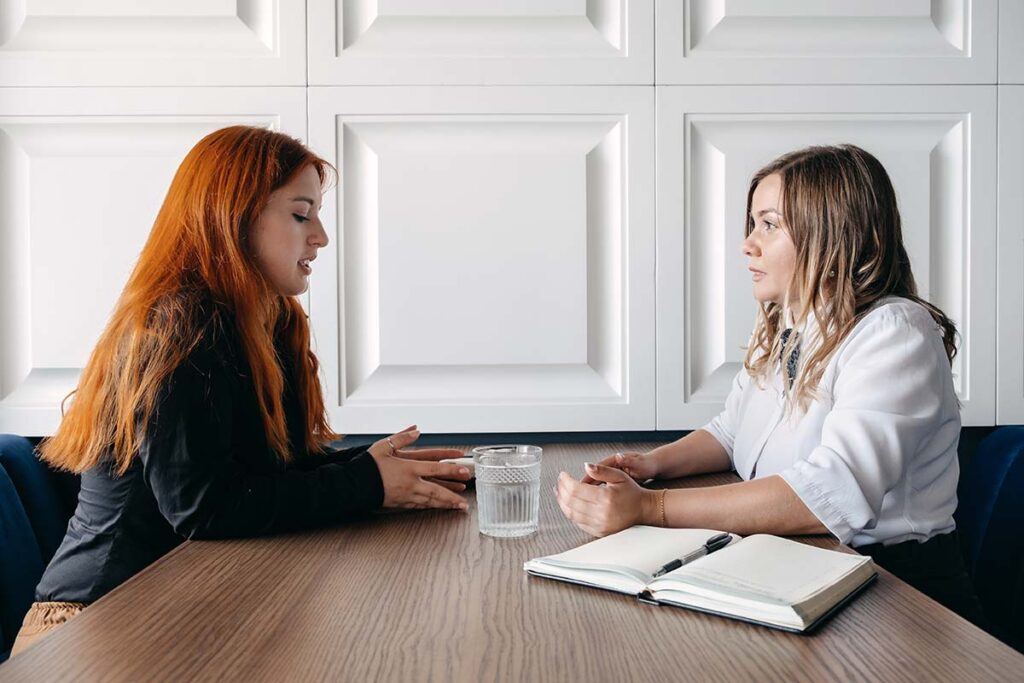When clinical depression strikes, what is the best way to receive treatment? Some patients could be better off checking into a 24-hour mental health treatment center where they can receive round-the-clock help. Day programs could better serve other patients, allowing them to maintain their daily lives while working to overcome depression.
However, a few patients may require an inpatient depression treatment center to overcome their unwanted mental health symptoms and improve their quality of life. Call 844.875.5609 and speak to someone from the caring and compassionate staff at Promises Behavioral Health about our inpatient or outpatient treatment for clinical depression.
Inpatient vs. Outpatient Treatment for Depression
Several studies investigate the differences between inpatient and outpatient treatment for clinical depression. However, deciding between them isn’t a matter of scientific research but a case of increasing a patient’s chances of survival.
Inpatient Depression Treatment
The National Institute of Mental Health (NIMH) considers inpatient hospitalization a necessity for depression treatment when a patient struggling with depression exhibits any of the following behaviors:
- Losing a lot of weight or gaining a lot of weight in a short period
- Refusing to eat or drinking very little
- Saying they want to die or hurt
Inpatient depression treatment is also necessary when a patient’s outpatient depression treatments have not worked in the past.
Outpatient Depression Treatment
Outpatient treatment for clinical depression is recommended for patients who are:
- Able to eat, sleep, and care for themselves normally
- Not in immediate danger of harming themselves or others
- Not at risk of losing their job or home
Sometimes, a patient wants to undergo outpatient treatment but is recommended inpatient treatment. In cases like this, it may be in the patient’s best interest to trust professional judgment—or they can get a second opinion if they want.
How Do You Decide Between Inpatient or Outpatient Treatment for Clinical Depression?
A mental health professional should decide between inpatient and outpatient treatment for clinical depression after carefully assessing the patient’s symptoms and level of care needs. For some patients, inpatient treatment may be the best option to ensure their safety and stability while they receive intensive mental health care. Other patients may do better in an outpatient setting where they can continue to live at home and go to work or school while receiving treatment. There are many different types of outpatient treatment for clinical depression, such as:
- Regular outpatient programs (OPs)
- Intensive outpatient programs (IOPs)
- Partial hospitalization programs (PHPs)
- Day treatment programs
The important thing is to seek help as soon as possible if you or a loved one is struggling with clinical depression.
There may be patients who would receive more significant benefits from inpatient care and not just advantages related to their overall safety and survival. More studies are needed to identify which patient profiles would best suit different forms of clinical depression treatment. However, some mental health experts have posited that the severity of a patient’s depression symptoms may determine whether inpatient or outpatient care is required.
Is an Inpatient Depression Treatment Center the Best Choice for You?
You may wonder if outpatient or inpatient treatment is best for clinical depression. Inpatient treatment requires staying in a residential facility, while outpatient does not. The options have some differentiating factors that are important to know before deciding which level of care is best for you or your loved one.
In an inpatient therapy program, patients can disconnect from the outside world and focus on their mental health and healing. Structured programs ensure that patients receive the level and quality of care they need. Those experiencing severe depression have constant support around the clock and may be provided medication to manage their symptoms.
Outpatient therapy programs allow patients to go about their daily lives while regularly checking in with a licensed therapist. The same practices of cognitive-behavioral therapy and dialectical behavior therapy are applied, and outpatient depression treatment may also involve medication. This can undoubtedly be a good option for those with more manageable depression symptoms seeking a lighter course of treatment.
Learn More About Clinical Depression Treatment at Promises Behavioral Health
Clinical depression and substance abuse can sometimes be linked. Often, people suffering from a substance use disorder also have an underlying mental health issue, resulting in a dual diagnosis. At Promises, we treat each person individually. If you or a loved one is suffering from substance abuse due to clinical depression, call 844.875.5609 today to learn more about the path to recovery.

